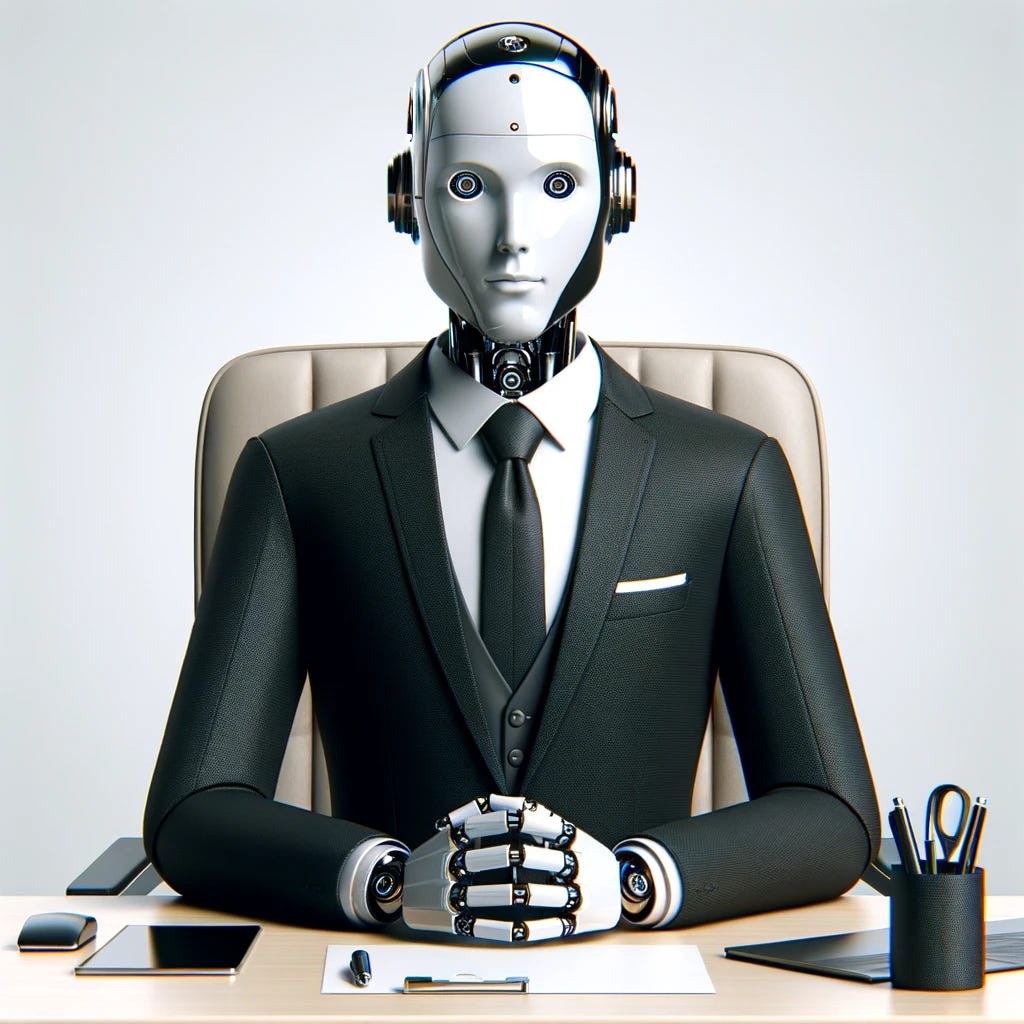Don't Be Naive, AI Will Take Jobs
New Ones Will Be Created As Well, But There Will Be Less of Others
Recently, I was tasked with writing the script for a short, promotional B2B video promoting a new service. I know how to write scripts but enjoy working with AI tools, so I co-wrote the script with ChatGPT. My prompting was very specific, and there’s no way AI could have done it without my writing, my detailed prompts, or my brain.
But a funny thing happened after writing the script… I realized that I could keep going beyond the initial written script to flush out what I thought would just be a conceptual experiment—using some AI voiceover and a crude, AI-enhanced video tool. I ended up using this combination to create a motion storyboard, I *thought* I would hand off to a video producer. But the more I worked with the AI voiceover, tweaked the script (manually), and refined some prompting—the more the video storyboard started to look and feel like a finished product.
Keep in mind—this is B2B storytelling and not a Nike ad—two very different worlds, and the fact of the matter was that I ended up with an asset that only needed some final finishing touches. As I write this, I was asked to make a change in the script, and it made me think of how this would have been done had I needed to make that change using human voiceover talent, like what’s featured in the video below—a project of mine pre Gen-AI days. Here’s what was required to make last-minute script/voiceover changes:
1. Set a meeting with the creative agency
2. Discuss script change
3. Change and approve script change
4. Await for an updated video with an updated voiceover from voice talent (1-2 days for a tight turnaround)
5. Approve updated voiceover recording
6. Update video with edit/new voiceover track and approve
The finished video below with the human voiceover required multiple steps similar to the above, and once done, it was done—unless we were willing to pay more to keep changing things…
Videos like the one above won’t be completely automated with AI, but parts will be similar to how I outlined the script writing, aided with ChatGPT or, in the case of my current project—the voiceover, which is one hundred percent AI generated—no human in a studio is being recorded, there are no multiple takes and no additional fees or production for script changes or updating the voiceover to reflect the script changes. So, a few moments ago, I updated the script and voiceover in minutes, not days or hours, and at no additional cost.
Let’s reflect on that last part for a moment…
AI voiceover requires no studio or human, and changes/versions can instantly reduce time and cost without sacrificing quality (and the technology will only get better).
I share the above anecdotal evidence to illustrate a point that many business leaders are simply not being fully honest about:
AI WILL take jobs
In the above example, at minimum, AI took the job from human voiceover talent and arguably the creative agency that works with that talent. It’s been my experience that business leaders treat this and related issues like it’s a third rail and, instead, lean into the below-talking points almost exclusively:
- AI will automate the mundane/repetitive parts of our work, allowing us to do the more desirable parts that we want to spend more time with
- AI will create new jobs
- AI will never replace the human touch
- AI will always require a “human in the loop (human assistance).”
Tell that to the voiceover artists doing B2B work for bootstrapped startups while there’s still work for them (for now)…
A more comprehensive reality is that all of the above is true, but it is also true that AI is making some roles redundant or reducing the need for so many of them (this second point is really important).
In the AI era, will we need more or fewer writers, interns, programmers, and voiceover artists?
If we’re being truly forthcoming, the answer will be less in some, though not all, cases. The question isn’t, “Can AI do it better than a human?” It’s really, “Can AI make fewer humans more efficient?”
The business world loves efficiency.
Look no further than your LinkedIn updates, where it’s more commonplace to see former friends and colleagues openly discussing how their position was made redundant. When tech leaders such as Mark Zuckerberg declared a “Year of Efficiency,” it created a ripple effect (and layoffs) throughout the tech sector—all in the name of efficiency and shareholder value.
While nearly every creative professional I know dreams of having their work celebrated at Cannes, the reality is their e-mail or Website copy isn’t Cannes material—and yet there’s no shortage of demand for mid-tier output. The “stuff” of everyday communications, marketing, etc. must get made. So, how much of this output ends up getting made by the machines?
Again, that's the wrong question. The question isn’t how much, as it is how to do it best. The answer is through humans working competently with AI-infused tools. But that means there will eventually be fewer jobs in the pursuit of speed, efficiency, and productivity as the tools become more advanced and higher fidelity. Expect AI voiceovers to be exponentially better a year from now than they are today, as with everything else AI.


